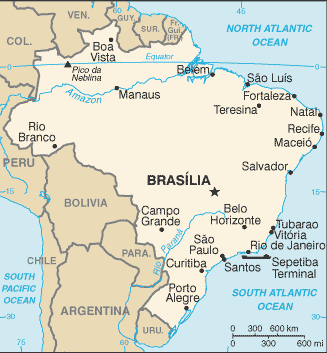 With the Rio de Janeiro Olympics over, the world media are moving on—but the city's poor favela dwellers are left to contend with a wave of murderous police terror. This was launched a year ago as part of an effort to pacify and sanitize the sprawling megalopolis for the Games. Amnesty International reports that over 100 people have been killed by police in Rio de Janeiro state so far this year—the big majority young Black men. A total of 307 were killed by police in the state in 2015. At least eight people in Rio were actually killed by police during the Games—to little media coverage. The clean-up operation was, of course, disguised as a crackdown on drugs and crime. The inevitable rationale was provided by the narco economy in the favelas—informal urban settlements virtually abandoned by the government for anything other than militarized law enforcement.
With the Rio de Janeiro Olympics over, the world media are moving on—but the city's poor favela dwellers are left to contend with a wave of murderous police terror. This was launched a year ago as part of an effort to pacify and sanitize the sprawling megalopolis for the Games. Amnesty International reports that over 100 people have been killed by police in Rio de Janeiro state so far this year—the big majority young Black men. A total of 307 were killed by police in the state in 2015. At least eight people in Rio were actually killed by police during the Games—to little media coverage. The clean-up operation was, of course, disguised as a crackdown on drugs and crime. The inevitable rationale was provided by the narco economy in the favelas—informal urban settlements virtually abandoned by the government for anything other than militarized law enforcement.
The local RioOnWatch website reports that locals got involved in documenting the police violence, using the Fogo Cruzado (Crossfire) app developed by Amnesty to track shootings in Rio via user-contributed reports.
As the Olympics opened, Amnesty warned that "public security" preparations had "unleashed a new wave of violence against favela residents and protestors." Some protests were related to the police repression, but also to Brazil's ongoing political crisis. During the Games, Amnesty reported that peaceful protesters were "harshly repressed by the police, both inside and outside sports arenas." Demonstrations on Aug. 5 and 12 in Rio were met with tear-gas and stun grenades, with several protesters detained. In São Paulo, police repressed a demonstration of some 100 on Aug. 5, and detained at least 15 minors.
A report on Vox notes the roots of this popular rage. Rio authorities made great efforts to hide the city's poor from view, bulldozing entire favelas, forcibly relocating 77,000 citizens, and cutting off bus lines that connected poor and predominantly Black districts to the area of the Olympic Village. Protesters had threaetened for months to disrupt the Olympic Games.
Amnesty found that in the seven years between when the Rio Olympics were announced and when the Games kicked off, the city’s security forces had already killed more than 2,500 people. So Rio's favela residents may well be breathing a sigh of relief that the big spectacle is over. But it remains to be seen how much of the murderous police pressure will actually be lifted.
Cross-post to High Times
Graphic: Perry-Castañeda Library Map Collection







Recent comments
3 weeks 5 days ago
3 weeks 5 days ago
6 weeks 6 days ago
7 weeks 5 days ago
11 weeks 5 days ago
15 weeks 4 days ago
19 weeks 4 days ago
20 weeks 2 days ago
30 weeks 2 days ago
34 weeks 3 days ago